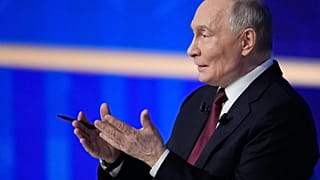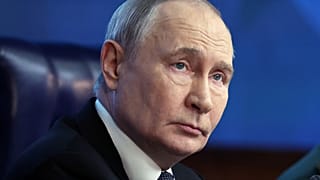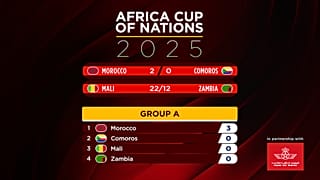Russia
Russian President Vladimir Putin said Thursday he hopes to meet next week with US President Donald Trump, possibly in the United Arab Emirates.
"We have many friends who are willing to help us organise such events. One of our friends is the president of the United Arab Emirates," he said, standing next to UAE leader Mohamed bin Zayed Al Nahyan in Moscow.
The news came on the eve of a White House deadline for Russia to show progress toward ending the three-year-old war in Ukraine.
Putin’s foreign affairs adviser, Yuri Ushakov, had said earlier a summit could possibly take place next week at a venue that has been decided “in principle.”
He brushed aside the possibility of Ukraine President Volodymyr Zelenskyy joining the summit, something the White House had said Trump was ready to consider.
Putin has spurned Zelenskyy’s previous offers of a meeting to clinch a breakthrough.
“We propose, first of all, to focus on preparing a bilateral meeting with Trump, and we consider it most important that this meeting be successful and productive,” Ushakov said.
There was no immediate comment Thursday from the White House and it was unclear how the announcement would affect Trump's Friday deadline for Russia to stop the killing or face heavy economic sanctions.
Speaking of the possible involvement of Zelenskyy in future talks, Putin said he has mentioned several times that he was not against it, adding: “It’s a possibility, but certain conditions need to be created” for it to happen.
The meeting would be the first US-Russia summit since 2021, when former President Joe Biden met Putin in Geneva.
While it would be a significant milestone toward Trump’s effort to end the war, there is no guarantee it would stop the fighting since Moscow and Kyiv remain far apart on their conditions for peace.
Months of US-led efforts have yielded no progress on stopping Russia's invasion of its neighbour.
The war has killed tens of thousands of troops on both sides as well as more than 12,000 Ukrainian civilians, according to the United Nations.
Western officials have repeatedly accused Putin of stalling for time in peace negotiations to allow Russian forces time to capture more Ukrainian land.
Putin previously has offered no concessions and will only accept a settlement on his terms.
A meeting between Putin and Trump on the war would be a departure from the Biden administration’s policy of “nothing about Ukraine without Ukraine” — a key demand from Kyiv.
At the start of his second term, Trump was conciliatory toward Putin, for whom he has long shown admiration, and even echoed some of his talking points on the war.
But he recently has expressed increasing exasperation with Putin, criticising the Kremlin leader for his unyielding stance on peace efforts, and has threatened Moscow with new sanctions.
Zelenskyy said he planned calls with European leaders Thursday to discuss the latest developments amid a flurry of diplomatic activity.
European countries must also be involved in finding a solution to the war on their own continent, he said on Telegram.
Securing a truce, deciding a format for a summit and providing assurances for Ukraine’s future protection from invasion — a consideration that must involve the US and Europe — are crucial aspects to address, Zelenskyy said.
He noted that Russian strikes on civilians haven't eased off despite Trump publicly urging Putin to relent.
Poll shows support for continuing the fight waning in Ukraine. A new Gallup poll published Thursday found that Ukrainians are increasingly eager for a settlement that ends the fight against Russia’s invasion.











01:45
Egypt's el-Sissi urges UN Security Council reforms for Africa's larger role
Go to video
TikTok signs deal to form new US unit with investors, including Oracle, Silver Lake
Go to video
Trump suspends green card lottery program
00:53
Tensions between South Africa and US rise over detention of US officials
01:00
Russian bombs hit Zaporizhzhia, wounding 35 and intensifying frontline battles
01:23
Donald Trump defends first year back in office in politically charged speech